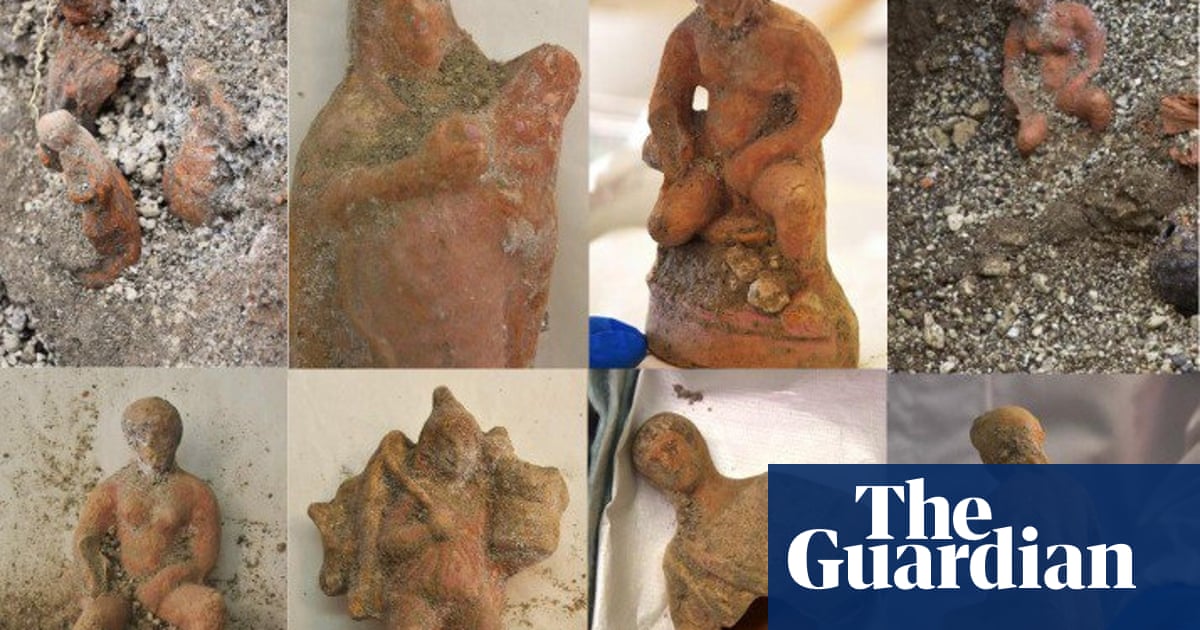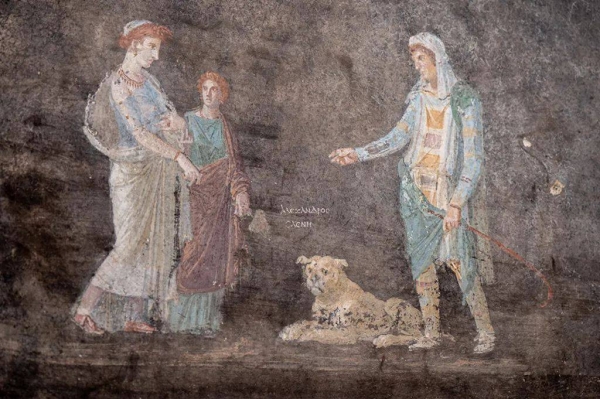
Thirteen Nativity-style statuettes have been found amid the ruins of Pompeii, a discovery experts say provides evidence of pagan ritual traditions in the ancient Roman city.
The terracotta sculptures were found in an upright position on what was probably a shelf in the hallway of a home during recent excavations at the archaeological park in southern Italy.
Pompeii archaeologists said in a statement that Christmas mangers were obviously not part of the tradition in the pagan city, which was wiped out by the eruption of Mount Vesuvius in AD79, but they believe the relics were used as part of a pagan ritual given the way in which they were arranged.
Some of the pieces, which include human figures, appear to pay tribute to the myth of the cult goddess Cybele and her tragic love, Attis.
Other sculptures depict the head of a cockerel, an almond, a walnut and a pine cone.
The hallway in which they were found also contained decorations on the walls.
The sculptures were found close to the House of Leda and the Swan, which takes its name from a sensual fresco depicting the Greek myth found in one of its rooms in 2019, and where excavation and restoration works are currently taking place. The domus is believed to have belonged to a rich merchant who wanted to reflect his high level of culture by adorning his home with myth-inspired frescoes.
The Pompeii ruins were discovered in the 16th century and continue to provide fresh insight into life in the ancient city. Earlier this month, a cramped bakery where enslaved people were imprisoned and exploited was found as part of a home that emerged during excavations in the Regio IX area of the archaeological park. The remains of three victims of Mount Vesuvius were found in one of the bakery’s rooms.
In May, the remains of two people believed to have been killed by an earthquake that accompanied the volcano eruption were found during excavations at the Insula dei Casti Amanti, or Insula of the Chaste Lovers, an area of Pompeii made up of a cluster of homes and a bakery. The skeletons are thought to have belonged to two men in their mid-50s.
In June, a striking still-life fresco resembling a pizza was found on a wall in what is believed to have been the hallway of a home that had a bakery in its annexe.












